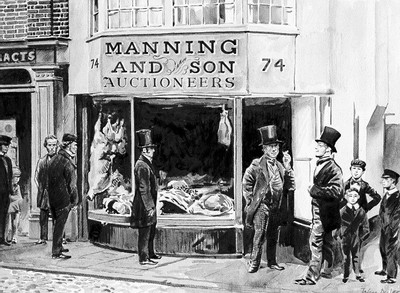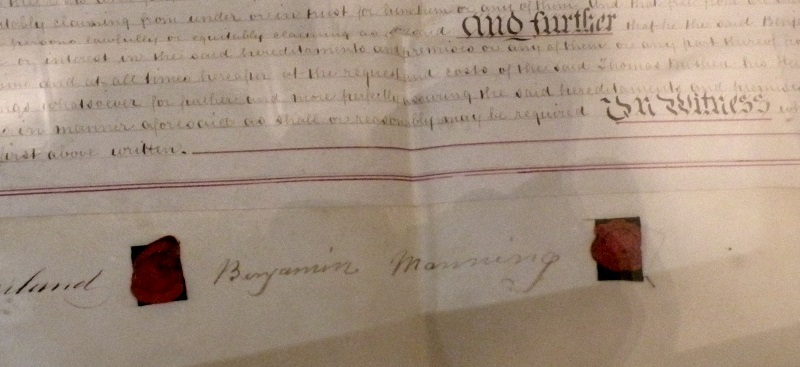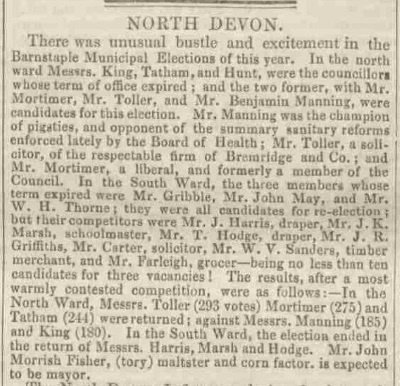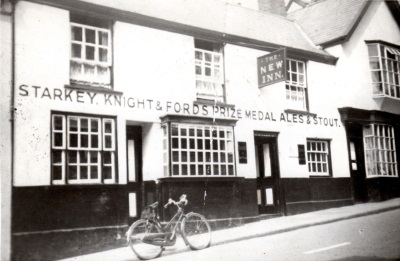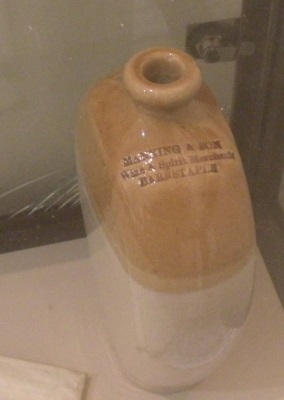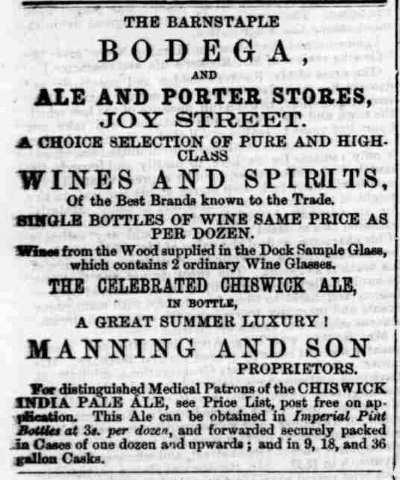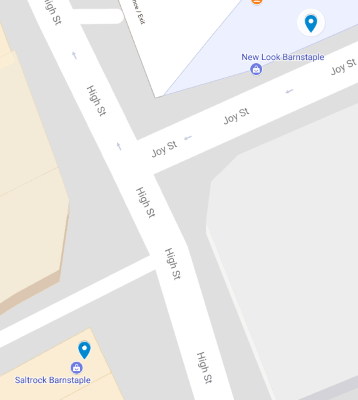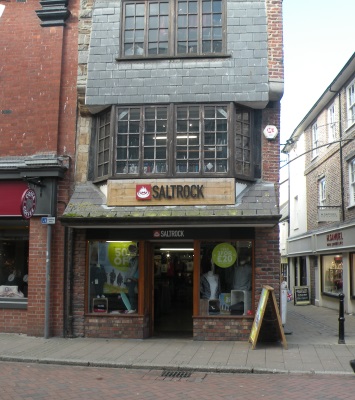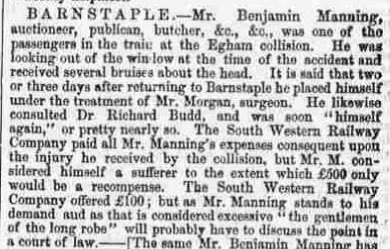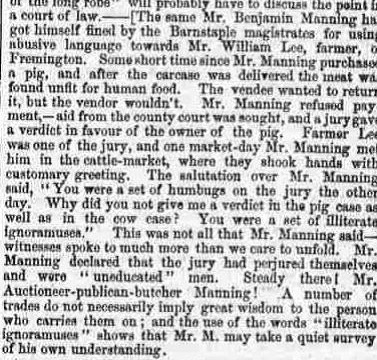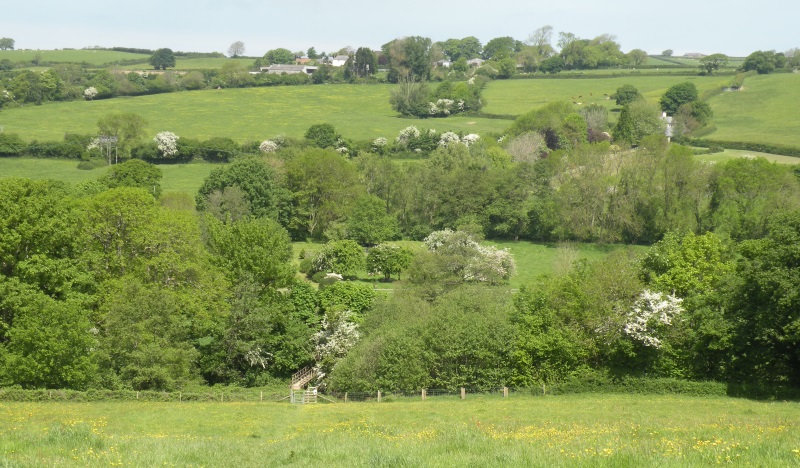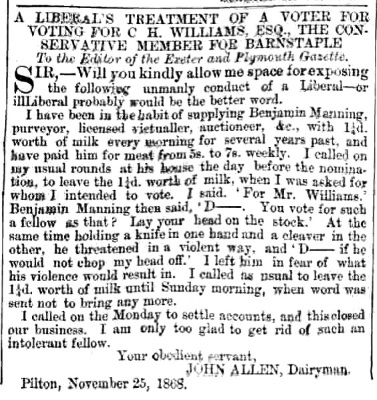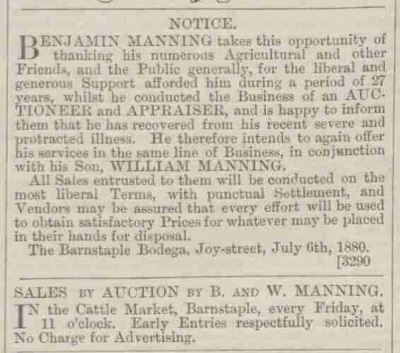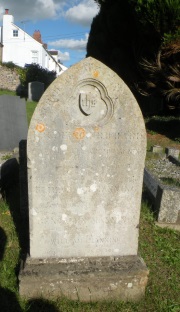Benjamin Manning came to Pilton
as an ordinary lace factory machinist, but by the end of
his life almost everyone in Victorian Pilton and
Barnstaple could have told you a story about him.
Whether they loved him or loathed him, everyone knew who
he was.
The best description
of him comes from his obituary, so we begin with it
here below:
|
The Exeter and Plymouth
Gazette, Friday 11 May, 1883
"DEATH OF MR BENJAMIN MANNING -
The death is recorded of Mr.
Benjamin Manning, of the Bodega, Joy Street,
and chief of the firm of Manning and Son,
auctioneers. The deceased, who died at the age
of 72, has led an active and a useful life,
and at one time took a prominent interest in
local affairs, having been elected for three
terms of three years each to the Town Council.
He was Liberal in politics of the old school,
always expressing his opinions fearlessly, but
sometimes with an amount of vehemence which
made it rather unpleasant for an opponent
should he be close at hand.
He was a self-made and
self-taught man. His knowledge of Shakespeare
was considerable, and we never recollect
hearing Mr Manning speak on political matters,
either in public or private, without
illustrating his argument with some apt
quotation from that poet. He established the
Bodega wine and spirit vaults, and for years
he made it the head centre of Liberalism in
the town. His strong convictions and his love
of expressing them always drew to the house
the principal men of his party, who now regret
his decease. Mr Manning had been failing in
health for the past few years, taking to his
bed three weeks ago."
|
Benjamin Manning was in
trouble in early life - he was sentenced to jail as an
apprentice for absconding from work - but by the age
of 20 he had settled down in Pilton, and married a
local woman, Elizabeth Gribble from Bishops Tawton. On
the 23rd of October 1833 his first child, John, was
baptised at Pilton Church.
The couple had three more children, all baptised at
Pilton Church, and the Census of 1851 shows the
whole family living at No 29 Pilton Street, along with
Elizabeth's parents. By this time, Benjamin was
no longer working at the lace factory, but had become
a butcher, grocer and auctioneer.
Benjamin Manning and the Press
Much of our
information comes from the British Newspaper Archives.
Benjamin Manning was always either writing to the
Newspapers, campaigning as a local politician, or
appearing in Court cases. One of the first references
we found about him came from the North Devon Journal
of May 13, 1847, when he was fined for evading a toll
charge at Maertop, on his way home from Sherwell with
a horse, cart, calf and two or three
lambs. You can read
the full report here
|
